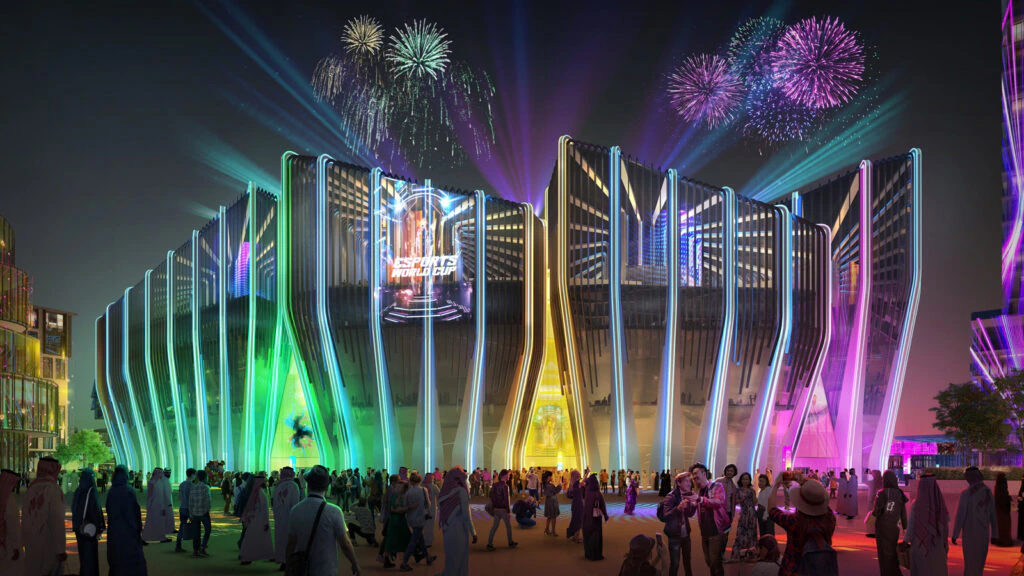In yet another major setback for Indian esports, India will not be participating in Free Fire at the upcoming Esports World Cup 2025 (EWC). Despite being home to one of the world’s largest gaming communities, the country has been excluded from the prestigious global event due to ongoing regulatory challenges and the continued absence of an official Free Fire esports ecosystem.
Organized by the Esports World Cup Foundation in collaboration with ESL FaceIt Group, the Esports World Cup 2025 is slated to run from July 8 to August 24 in Riyadh, Saudi Arabia. With a record-breaking $70+ million prize pool (approx. ₹594 crore) and participation from over 2,000 professional players and 200 esports organizations, the EWC is shaping up to be the most lucrative and influential event in esports history.
Featuring 25 tournaments across 24 titles, the event not only recognizes individual game champions but also crowns an overall winner via the Club Championship—a unique cross-title points-based format. As part of the tournament’s global growth initiative, the Esports World Cup Foundation launched a $20 million Club Partner Program, designed to support and scale esports organizations worldwide. India’s own S8UL made the cut as the only Indian org to be included in this elite list.
Even with strong community support and years of player development, India has not been awarded a slot in Free Fire—one of the key titles at the World Cup. Slot allocation for the event paints a clear picture of India’s absence:
- 8 slots: Southeast Asia
- 4 slots: Brazil
- 2 slots: Latin America
- 1 slot each: Pakistan, Bangladesh, Middle East
- 1 slot: Defending champions (Team Falcons – EWC 2024 winners)
Notably, India is nowhere on this list. According to sources cited by India Today Gaming, there were behind-the-scenes efforts to negotiate India’s inclusion before the official deadline, but these talks didn’t materialize in time. In contrast, Bangladesh successfully completed its national qualifiers, securing its spot and underscoring how narrowly India missed out.
One of the major contributing factors to this exclusion is India’s ongoing ban on Garena Free Fire, which was imposed in 2022 citing national security and data privacy concerns. Although Free Fire Max remains accessible, the absence of official tournaments and competitive circuits has made it impossible for Indian teams to qualify or gain international recognition.
For many players, Free Fire was not just another mobile title—it was a professional pathway. The sudden ban disrupted numerous esports careers and left organizations scrambling to refocus on other titles like BGMI. Unfortunately, no alternative has yet matched Free Fire’s reach or popularity in India’s grassroots esports scene.
This exclusion has deeper implications than missing a tournament—it represents a significant bottleneck in the ecosystem. Aspiring pros have fewer platforms to showcase talent, and the lack of Indian presence on the global stage dissuades sponsors, brands, and tournament organizers from investing further.
The ripple effect is hard to ignore. When one of the country’s biggest esports titles loses its competitive footing, thousands of players, creators, and stakeholders feel the impact—from missed monetization opportunities to diminished global visibility.
There is still a flicker of hope. According to unconfirmed reports, India might receive an invitation to the Free Fire World Series (FFWS) Global Finals 2025, expected in November. While nothing is official yet, this potential opportunity could offer Indian teams a chance to re-enter the international Free Fire arena—if the necessary regulatory and logistical hurdles are cleared in time.
India’s repeated exclusion from global esports tournaments is more than a missed opportunity—it’s a call to action. The country has immense talent, a massive player base, and passionate fans. What it lacks is a unified approach between publishers, tournament organizers, and government bodies to support long-term growth.
If India aims to be a global leader in the multi-billion-dollar esports economy, the time for coordinated action is now.
